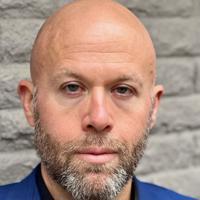On the Nose: Nasality as Percept and Physical Reality
Thursday 9th May 2024, 5:00 PM - 7:00 PM (London Time)
Nasality has a long history of consideration in singing teaching. Even early voice treatise author Pierfrancesco Tosi addressed nasality in his writing, stating: “…the voice of the scholar… whether it be di petto or di testa, should always come forth neat and clear, without passing through the nose, or being choked in the throat; which are two of the most horrible defects in a singer". Tosi’s quote reveals an obvious stylistic aesthetic preference, but one that was likely based on tone or timbre, rather than any physical reality.
Empirical studies that have sought to ascertain whether expert listeners agree on the timbral quality of 'nasality' have historically fallen short of finding listener agreement on the sound of perceptual nasality. Still, if you inquired of voice teachers whether they could perceptually identify nasality, most often they would claim that they could.
There have been other studies which have measured velopharyngeal opening by means of acoustic or aerodynamic signal through the nasal cavity during singing. Most of these have focused on the use of nasal airflow near passaggi.
This course will address three perspectives on nasality:
1) Distinctions between nasal airflow and audio signal (velopharyngeal opening) and perception;
2) Deciphering between the two timbral qualities commonly related to nasality - twang and honk - and which are related to velopharyngeal opening;
3) The pedagogic usefulness of velopharyngeal opening to reduce laryngeal instabilities near points of registration shifts.
Nicholas Perna
Tenor Nicholas Perna is Associate Professor of Voice and Producer for Lyric Stage at Mississippi College, Vice President for Outreach for NATS, the creator and co-host of the VocalFri Podcast, and has presented research on four continents. His voice has been hailed by the Houston Chronicle as “an impressive sound", and the South Florida Sun Sentinel praised his “emotionally driven performance".

Attend this course for as little as £22 as part of the Voice Professional Training CPD Award Scheme.
Learn MoreSorry, this is an archived short course...
We have plenty of upcoming short courses coming soon. See details of some of them below or look at the full list of short courses.

Wednesday 4th March 2026
1:00 PM - 2:00 PM
Wednesday 11th March 2026
1:00 PM - 2:00 PM
Wednesday 18th March 2026
1:00 PM - 2:00 PM
Wednesday 25th March 2026
1:00 PM - 2:00 PM
Wednesday 1st April 2026
1:00 PM - 2:00 PM
Wednesday 8th April 2026
1:00 PM - 2:00 PM
(London Time)
Learn to Coach RP and SSBE – a Certificate in Accent Coaching

Louisa Morgan
This six-week course is an opportunity to learn about both Received Pronunciation and Standard Southern British English. Rather than a course in learning how to speak RP/SSBE (there are many brilliant available courses for this already), this course is about learning how to coach it.

Thursday 5th March 2026
1:00 PM - 2:30 PM
Thursday 12th March 2026
1:00 PM - 2:30 PM
(London Time)
Acting Emotion: Perspectives from the Masters

Louisa Morgan
Stanislavski said, “our artistic emotions are, at first, as shy as wild animals and they hide in the depths of our souls.” Michael Chekhov said, our bodies should be like a “sensitive membrane, a kind of receiver and conveyor of the subtlest images, feelings, emotions and will impulses.” And Meisner said we should be “living truthfully under imaginary circumstances.” Join Louisa Morgan in this 2-part course as she explores a range of well-known acting practitioners to investigate what they believed (or believe) about emotion and how they approached it in their work. She'll compare their work to see where they align and where they diverge.


Tuesday 10th March 2026
3:00 PM - 5:00 PM
(London Time)
Living truthfully in the present moment: An introduction to the Meisner Technique!

Abigail Sugden
Sanford Meisner believed that acting is living truthfully under imaginary circumstances. Rooted in behavioural aspects of acting practice, the Meisner Technique is often associated with encouraging actors to live truthfully in the present moment. Aimed at those working within the field of acting, this 2-hour session with Abigail Sugden will focus on the work of Sanford Meisner, introducing the core principles of his technique and discussing the possible benefits to performers.
